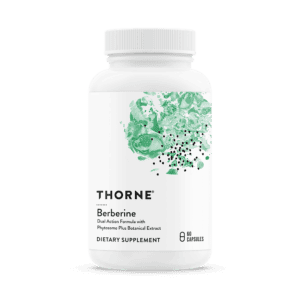Stress and Your Food Choices
Home »
When you are stressed do you find yourself reaching for foods you would not normally? Or you may be one of those people who completely loses their appetite…
With the festive season fast approaching (I swear it comes around quicker every year!), this is the time of year where stress levels tend to be on the rise as you are rushing around organising lunch or dinner events, fitting in with the ever changing schedules of your family members, buying gifts or just dealing with the increased traffic on the road!

Yes, what and how much we eat plus how often you move your body influence your weight, however emotional and physical stress also have the potential to tip the scales in either direction or change your eating habits.
When your body is under prolonged periods of stress it will constantly produce adrenalin, resulting in your energy levels being rather inconsistent through the day. One minute you are on fire, then you crash…sound familiar? As a result, the food choices you make when you crash tend to be of poor nutritional quality. Caffeine, sugars or starches, or all three are typical choices during these times.
Let’s be honest.
You don’t polish off whole tub of ice cream thinking you are going to feel amazing afterwards. It is not from a lack of knowledge you do this. You do this for several biochemical and emotional reasons, or in some cases both.
Caffeine is a prime example of this. Consuming too much caffeine leads to the release of adrenalin, one of your body’s stress hormones, leaving you feeling stressed/rushed as a result. If you are already a stressed or anxious person that caffeine hit may leave you feeling not so good, even jittery. One thing you could do is try swapping coffee for green tea or if that is just unthinkable, ask for a single shot coffee instead. Take note if you feel calmer and more energized after a week of making this change.
Stress & Weight Gain
Prolonged overproduction of our long-term stress hormone, cortisol, can lead to fat gain inside your abdomen around your vital organs (known as visceral fat). This type of fat is strongly linked to inflammation and increased risk of disease.
Why does this happen?
High cortisol over the long-term signals to your body that you are under constant stress or in danger hence needing to just survive. The body’s response in this situation is to burn body fat for energy at a much slower rate and promote fat deposition around your middle to ensure you survive this ‘stress’ or what your body perceives as a period of famine. Although this is not ideal, your body is actually looking after you and ensuring you stay alive.
In this stressed state, many people rely on food to ease their stress. Your food choices are generally a good indication of whether you are eating to alleviate stress or eating just because you are hungry. It is a rare occurrence one would crave a huge bowl of spinach when they are stressed! As you will see in the later part of this article, identifying the cause of your stress is the first step to overcoming this situation.
Stress & Weight Loss
Then there is the complete opposite end of the scale. When under chronic stress or experiencing anxiety, some people describe that just the thought of eating makes them feel nauseous.
Why is this?
As described above, when you are stressed your body produces stress hormones as part of the ‘fight or flight’ response system. When this system is in action it suppresses what the body considers non-essential processes, such as digestion, hence digestive processes are compromised and those feelings of nausea present themselves. Liquids may be beneficial in this situation as they are easier to digest, such as soups, smoothies and slow-cooked casseroles, and also taking a deeper look into why you are stressed will be beneficial in addressing this issue.
Beyond food
Stress is a part of life and is not necessarily a bad thing at the right time; however chronic stress has a major impact on your health and food choices. Identifying where this stress in your life is coming from or if your thoughts and perceptions of pressure and urgency are driving your actions is important for you to consider. There are obvious stressors in your life; work deadlines, financial pressures, relationship pressures etc. There are also other situations you may have never thought to be causing you stress. Your daily commute to work or people in your life may leave you feeling stressed due to their nature or how you react to them.
So how can you identify what may be causing you to feel stressed?
Try this. When you feel stressed write down what caused this, your thoughts and mood at the time. Identifying the source of your stress is the first step, then you can develop your own plan to address these factors and move yourself closer to improving your health.
By Stacey Rogers
Turn Your Goals into Reality! Contact Us today

Shredded APP
Book into classes, manage your membership, passes, book our private recovery spaces and MORE! All you need to do is download and log in to the Shredded App!
Meet the team
At Shredded, we take care of our coaches so they can take care of you. Our team is on hand to support you while you train and help you as you progress towards your goals.






























